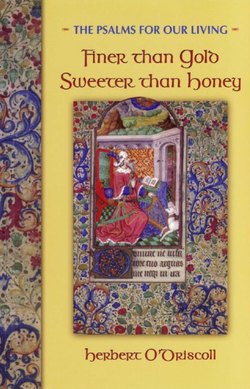Читать книгу The Psalms - Herbert O'Driscoll - Страница 15
На сайте Литреса книга снята с продажи.
ОглавлениеPsalm 8
O Lord our governor,
how exalted is your name in all the world!
J. B. Phillips, one of the very gifted Bible translators of the last century, used to insist that our God is too small—meaning, of course, that our concept of God is insufficient. Not so with the psalmist.
Millennia before the first space shuttle blasted off from Cape Canaveral to show us the earth from space, the psalmist conveys a sense of infinite space when he speaks of God. This is not the God of a mere city or a single country. “O Lord our governor, how exalted is your name in all the world!” But even this is not enough. “Your majesty is praised above the heavens.”
The psalmist is experiencing one of those moments that come to us all. It may have happened first to us as a child, gazing at the night sky from a country road, the stars blazing as they never do for us in the city. Perhaps it is such a memory from his own childhood that makes the psalmist say, “Out of the mouths of infants and children your majesty is praised.”
“When I consider your heavens, the work of your fingers.” What a subtle and gracefully paid compliment to the majesty of God. To send the moon and the stars on their heavenly courses requires nothing more than a flick of the divine fingers! No struggle, no challenge—a mere gesture.
Then comes the mysterious question, as it occurs to all of us under the shining canopy of the night sky: What is my place in all of this vastness? “What is man that you should be mindful of him? the son of man that you should seek him out?” The question first sounds inside oneself, but then reaches out to encompass the whole of humanity and the mysterious human story.
And what intrigues the psalmist is the question that has for us become an immense challenge: “You give [human beings] mastery over the works of your hands.” Notice the reminder that humanity is not the maker, but merely the recipient of the gift.
And what is the nature of this “mastery” that we have so sadly mishandled and even betrayed? Even as we ask, the psalmist spells out our eternal responsibility. It is nothing less than for “all sheep and oxen, even the wild beasts of the field, The birds of the air, the fish of the sea.”
The psalmist’s repeated naming of God as governor is a reminder. We will truly govern our dealings with the rest of this planetary creation only when we see ourselves as the creatures of a God who governs us, and who demands that we be accountable for the gift of creation given to us.
Consider some entity that you love in the world of nature—human or animal, tree or flower, mountain or valley, lake or river, field or forest—anything. Ask yourself how God feels toward this entity. Ask God to move all people to love and care for creation.
